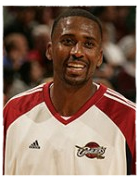The wounds never healed for Jack Tatum or Darryl StingleyJack Tatum died Tuesday at 61. That can't be said without adding this:
Darryl Stingley died three years ago at 55.
Tatum spent his last years with parts of both legs taken by diabetes. That can't be said without adding this:
Stingley spent his last three decades in a wheelchair.
Tatum's life was forever changed on Aug. 12, 1978. That can't be said without adding this:
Stingley's life was turned into a nightmare.
THE HUDDLE: Jack Tatum dies at 61
It has always been hard to mention one scarred man without adding the other.
Stingley will always be the New England receiver who ended up paralyzed in a wheelchair.
Tatum will always be the Oakland defensive back whose tackle put him there.
And here is one of the saddest things of all:
They never spoke after that terrible intersection of fates. They never reconciled.
There was never a postscript to ease any of the anguish. They were never able to look each other in the eye, and at least try to make some sense of one of the NFL's true tragedies.
They never will.
Even now, the replay is hard to watch, hinting of something ominous. You see Stingley in a white Patriots uniform cutting across the middle, reaching out for a pass, slightly off balance on his right leg. Tatum is there for the Raiders, taking aim at Stingley with one of those helmet-on-helmet tackles that earned him his feared nickname, The Assassin.
Even though it was only an exhibition game, Stingley was an opposing receiver, and in Tatum's world, that made him an enemy. Stingley never had a chance.
That lunge on his right leg was the final step of his life. There was nothing illegal about the tackle under the rules of 1978. No flag was thrown, no fine was assessed. It was the kind of hit that fans craved, and networks showed on the highlights.
Only. .. Stingley wasn't moving.
The NFL got a hard lesson that day on where the violence of its game — the violence that had won it such speedy favor on television — might lead.
New rules would come later banning such hits as the one Tatum made that day. The game would become safer. But it was too late to help Darryl Stingley
They were supposed to get together once, for a joint television interview in 1996. But Stingley found out Tatum would be pushing his new book, apparently didn't want to be part of a promotional effort, and pulled out.
Looking through various reported quotes from the two men and their camps through the years, there always seemed a chasm of misunderstanding, or mistrust, or hard feelings.
Stingley was said to be hurt that Tatum never came by after the incident.
Tatum was quoted as saying he tried, but was kept away by the Stingley family.
Stingley was reportedly upset he never heard an apology.
Tatum was quoted as saying he felt bad about what had happened, but had not done anything illegal to apologize for. The league and the fans and the media had honored him for being a hard tackler. Had everyone forgotten that?
You can find supporters of Stingley charging that Tatum never showed remorse, and indeed cherished being The Assassin to the final game of his career.
You can find supporters of Tatum saying he was deeply troubled by what had happened.
Stingley had three children and started an organization to help troubled youths in Chicago. He died of complications from his injury.
Tatum had three children and started an organization in Ohio to raise funds for diabetes research. He died of an apparent heart attack.
When news came in 2003 of Tatum losing part of his leg, Stingley told The Boston Globe: "Maybe the natural reaction is to think he got what was coming to him, but I don't accept human nature as our real nature. Human nature teaches us to hate, God teaches us to love."
When Stingley died, Tatum released a statement, "Darryl will be forever remembered for his strength and courage. My heart and prayers go out to his family."
Too bad they could never say such things to one another. They stayed distant men, but they are destined to be forever connected.



















